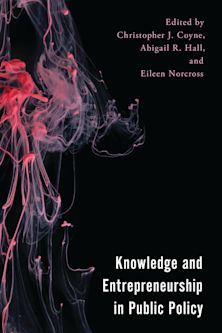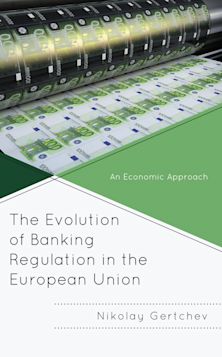Energy Economics
Science, Policy, and Economic Applications
Energy Economics
Science, Policy, and Economic Applications
This product is usually dispatched within 3 days
- Delivery and returns info
-
Free US delivery on orders $35 or over
Description
Energy Economics: Science, Policy, and Economic Applications explains energy systems from an economics perspective. Specifically, the author uses the tools of economics to analyze the development of modern energy systems, the world’s reliance on fossil fuels, and the components of a transition to cleaner energy resources. He also considers the science and policy underlying important energy issues, especially with respect to nuclear energy and the climate crisis, arguing that, without changes to the world’s fossil fuel consumption patterns, an increase in demand for energy will exacerbate environmental problems. This reality demonstrates the importance of the book's analysis of primary energy sources, energy supply and demand, and energy systems. Energy matters are fundamental to our way of life; yet, when it comes to energy economics, many people do not have a working vocabulary.
Table of Contents
Chapter 1: Introduction to Energy Economics
Chapter 2: Energy Systems, Efficiency, and Conservation
Chapter 3: Energy Sectors I: Power and Electricity
Chapter 4: Energy Sectors II: Fuels, Buildings, Manufacturing, and Transportation
Chapter 5: Energy Policy: Theory and Application
Chapter 6: Energy Supply, Demand, and Markets
Part 2: Traditional Energy Resources
Chapter 7: Oil: Fuel for the Global Economy
Chapter 8: Coal: Fuel for the Power Industry
Chapter 9: Natural Gas: A New Horizon in Energy
Chapter 10: Nuclear Energy: The Controversy Continues
Part 3: Moving Forward
Chapter 11: The Rise of Renewable Energy
Chapter 12: Energy, Economics, and the Climate Crisis
Chapter 13: Energy Security
Chapter 14: Conclusion: Achieving a Clean Energy Transformation
Product details
| Published | Mar 07 2022 |
|---|---|
| Format | Paperback |
| Edition | 1st |
| Extent | 378 |
| ISBN | 9781498586603 |
| Imprint | Lexington Books |
| Illustrations | 17 b/w illustrations; 18 b/w photos; 7 tables; 7 textboxes; |
| Dimensions | 9 x 6 inches |
| Publisher | Bloomsbury Publishing |
Reviews

ONLINE RESOURCES
Bloomsbury Collections
This book is available on Bloomsbury Collections where your library has access.


































